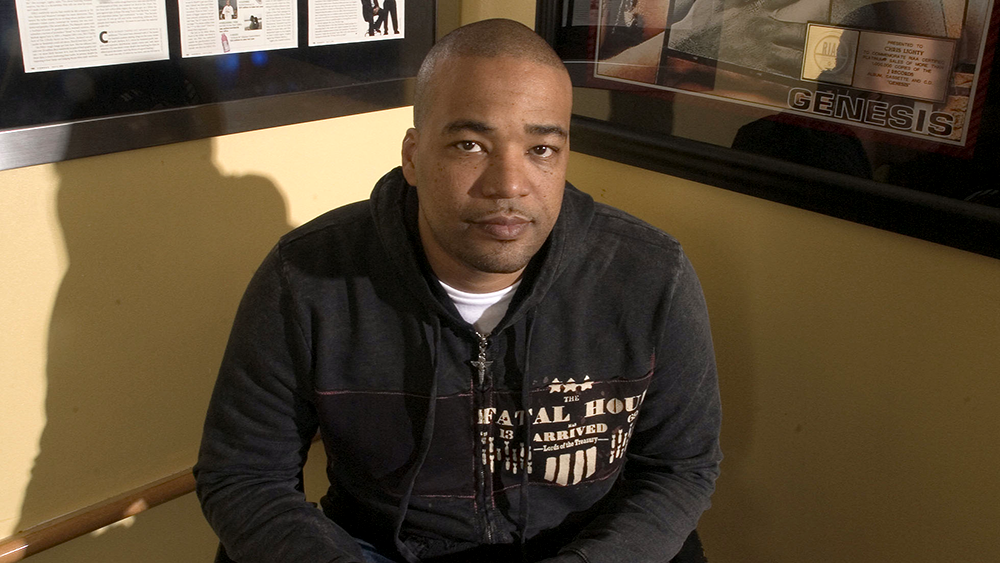Spotify Podcast ‘Mogul’ Details the Tragic Story of Pioneering Hip-Hop Exec Chris Lighty

Just two months after announcing its podcast initiative with Gimlet Media, Spotify is stepping up as a serious contender with its most ambitious effort to date.
“Mogul: The Life & Death of Chris Lighty,” a six-part series that sees its first two episodes debuting on the service today, marks the streaming titan’s first foray into documentary series podcasting, telling the music entrepreneur’s bootstrap rise from Bronx kid to manager of iconic hip-hop artists (Diddy, Missy Elliott, Busta Rhymes) to his unexpected suicide in 2012 at just 44 years old. It’s a markedly comprehensive undertaking hosted by Reggie Osse (of the popular Combat Jack podcast) that features Lighty’s mother and sister as well as musicians like Fat Joe, N.O.R.E. and Warren G speaking on his life and impact on the hip-hop community and beyond.
In the first episode, “Mogul” takes listeners back to the dawn of the hip-hop revolution in 1970s New York, where Lighty was raised in the Bronx River Housing Projects. Hip-hop was becoming a culture right outside of his window, and he spent his free time carrying crates for pioneering DJ Red Alert and trying to get into clubs for free with his coterie of friends. It was the latter action for which the crew became known as “violators”— the term that would recur throughout his career and what would inspire the name for his management and marketing company, Violator Entertainment.
To understand Lighty’s impact is to trace the artists with whom he worked, and how he elevated them from beyond standard hip-hop deals. His hands touched many careers — LL Cool J, Mariah Carey, Q-Tip, Nas and Ja Rule are just a sample of artists under his purview — and his accomplishments are vast. Lighty was the one who orchestrated 50 Cent’s deal with Vitamin Water prior to its sale to Coca-Cola, which earned the rapper an estimated $80-100 million in 2004. He got LL Cool J booked for a Gap commercial in 1997, when hip-hop artists weren’t necessarily considered for the face of international brands, and inked soda deal after soda deal for acts like A Tribe Called Quest and Busta Rhymes. According to the New York Times, his company’s clients sold 80 million records in 2007. Yet in August of 2012, he suddenly committed suicide in the midst of a pending divorce from his wife of seven years, as well as an outstanding debt to the IRS of $5 million.
For Osse, it’s important that Lighty’s story is told because his presence is so strongly felt today. “I look at Chris’ influence in what Jay Z is doing, someone who’s so multifaceted,” he said. “We found out that Chris was really looking at getting into sports and looking at brands that were really beyond the beverage or the alcohol or apparel. It’s obvious that Chris was definitely an influence on Jay Z — and even [Diddy], who was managed and influenced by Lighty at a certain juncture in his career. If you look at the Diddys and Jay Zs and even Dr. Dres, becoming arguably ‘hip-hop’s first billionaire,’ all of those are evidence of blueprints laid down by Chris.”
Pivoting into original podcasting felt like a natural turn after hosting licensed podcasts on the service for years, said Tom Calderone, Spotify’s global head of content partnerships. “People love listening to podcasts,” he said. “What we felt is important is that Spotify has its imprint and footprint in original storytelling, particularly when it came to music. We thought it was perfect for a start in that model. Because of some of the subsets we’ve seen on the licensed podcasts, having an expression of original was really important to the Spotify studios.”
Spotify has found success across genres — its “electroNOW” playlist has 4.1 million subscribers — but none more so than with hip-hop. “RapCaviar,” a taste-making playlist that has 6.2 million followers, was one of the reasons that the company decided to focus its energies in producing a podcast about Lighty’s life. “Hip-hop is a really important voice to Spotify,” continued Calderone. “Having said that, I think one thing we thought was missing is the fact that a story like Chris’ [life] is definitely an important one for the history of hip-hop, but also the human element of it and the pain and the struggles that he went through. It’s a real hip-hop story that a lot of people don’t talk about. Also, knowing that audio is truly the intent of our users, that this would just complement everything about Spotify when doing an audio documentary like ‘Mogul.’”
Lighty’s series comes on the heels of two original podcasts previously released in the wake of its announcement with Gimlet in February. The first, “Showstopper,” focused on music’s impact on television, while the second, “Unpacked,” followed music supervisor Matt FX and Spotify Studios’ Michele Santucci through their journey to different U.S. music festivals. Calderone added that “Mogul,” the third in the partnership, is just the beginning.
“The list is very long of all these great stories we can tell on the audio side,” he said. “But we want to make sure we learn from this and make sure at the end of the day, the people who use our service not only enjoy and understand it, but start asking for more. Once the audience demand is there, we’re going to follow it.”
Get more from Variety and Variety411: Follow us on Twitter, Facebook, Newsletter
